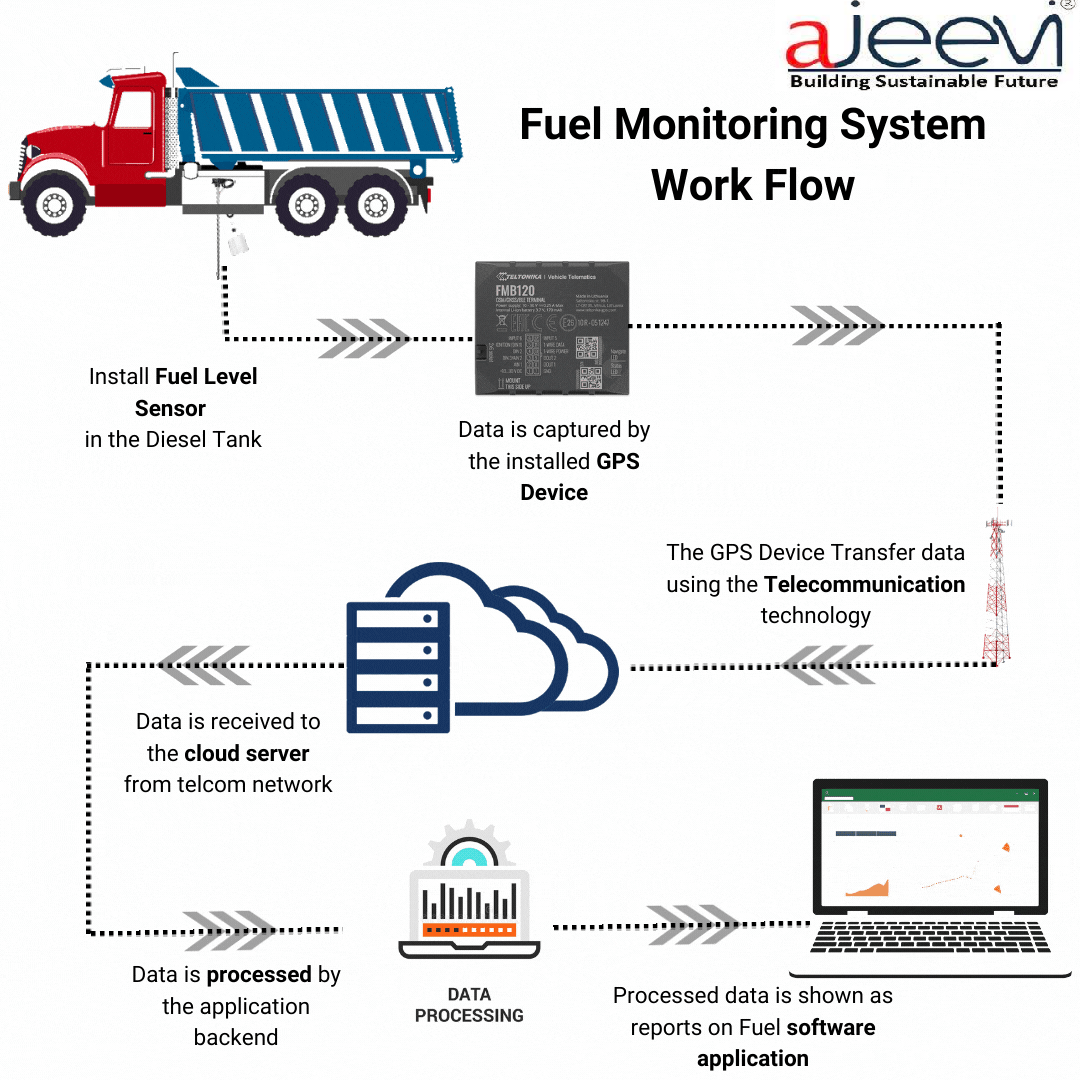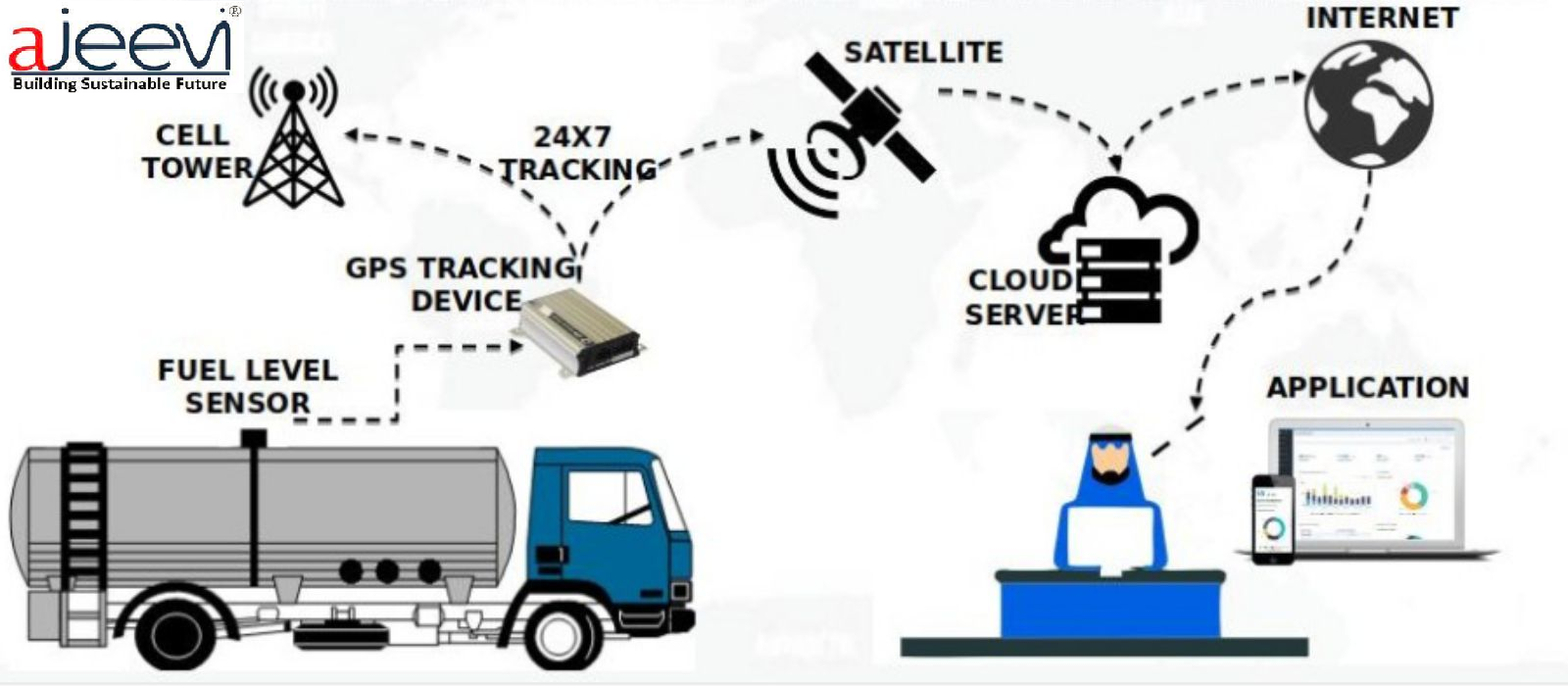Industries->Smart Fuel Monitoring



The integration of the Internet of Things (IoT) has brought about a revolutionary transformation in various industries, and fuel monitoring is no exception. With the rising emphasis on sustainability, cost-efficiency, and environmental responsibility, the use of IoT in fuel monitoring has emerged as a strategic solution. By leveraging interconnected sensors, telemetry devices, and real-time data analytics, fuel monitoring through IoT enables precise tracking, management, and optimization of fuel consumption across diverse sectors, ranging from transportation and logistics to industrial operations.
Fuel monitoring using IoT offers a paradigm shift from traditional methods, introducing an intelligent and data-driven approach to manage fuel resources effectively. IoT devices installed in vehicles, machinery, and fuel storage facilities provide continuous and accurate data on fuel levels, consumption patterns, and operational efficiency. This not only aids in preventing fuel theft and unauthorized usage but also empowers businesses to make informed decisions, optimize routes, and implement proactive maintenance strategies.
In conclusion, the incorporation of the Internet of Things (IoT) in fuel monitoring heralds a transformative era where precision, efficiency, and sustainability converge to redefine how industries manage their fuel resources. The ability to capture real-time data, perform analytics, and implement proactive measures based on insights not only optimizes fuel consumption but also enhances operational efficiency across diverse sectors. By addressing challenges such as fuel theft, route optimization, and predictive maintenance, IoT-based fuel monitoring systems contribute to cost savings, improved security, and a reduced environmental footprint. This technological evolution aligns seamlessly with the global push toward sustainable practices, demonstrating the power of IoT in fostering smarter, more responsible fuel management. As industries continue to embrace these innovations, the synergy between IoT and fuel monitoring signifies a promising future where data-driven strategies pave the way for more efficient, secure, and environmentally conscious fuel utilization.


Android Handheld UHF Reader
Automatic Boom Barrier
Automatic Number Plate Reader Camera
Bin Level Sensor
Bio Metrics Machine
Bullet Camera Live
Chlorine Sensor
Data Transmission Unit
Emergency Call Box
Environment Sensor
Face Recognition
Flood Sensor
Fuel Sensor
Galvanized Iron Pole
Gi-Pole
GPS
GPS-AIS140
Handheld HF Reader
Handheld UHF Reader
PTZ Camera
Public Address Speaker
Public Address System
Hydraulic Boom Barrier
IP Bullet Camera
IRIS
Magnetic Sensor
Network Rack
Network Video Recorder
Panic Button
Parking Entry Exit UHF Reader Vehicle Mounted UHF Reader
Passenger information systems
Ph Sensor
Refrigerator Sensor
RFID Tag – HF
RFID Tag – UHF
RFID Tag Metal – UHF
Smart Kiosk
Smart Pole
Soil Sensor
Drainage Sensor
Temperature Sensor
Turbidity Sensor
Ultrasonic Flow Meter Variable Sign Board Weigh Bridge Entry Exit Reader
Ajeevi Offer “Enterprise IoT Solutions” with in-house R&D, Capability of manufacturing IOT devices.
505, Tower A-1, Corporate Park
Noida 201301, Uttar Pradesh India
presales@ajeevi.com
+91-9654323500